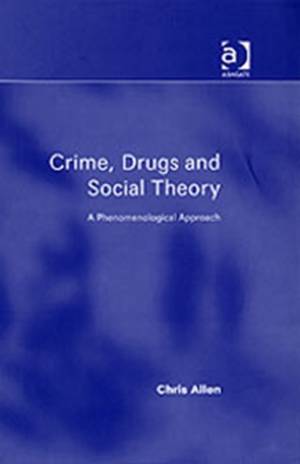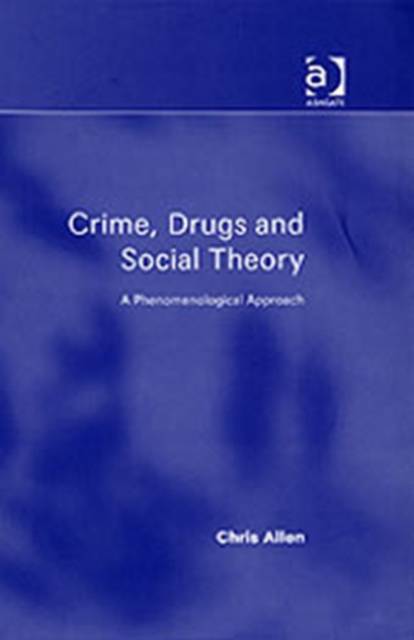
- Afhalen na 1 uur in een winkel met voorraad
- Gratis thuislevering in België vanaf € 30
- Ruim aanbod met 7 miljoen producten
- Afhalen na 1 uur in een winkel met voorraad
- Gratis thuislevering in België vanaf € 30
- Ruim aanbod met 7 miljoen producten
Zoeken
€ 237,45
+ 474 punten
Omschrijving
Do criminal cultures generate drug use? Crime, Drugs and Social Theory critiques conventional academic and policy thinking concerning the relationship between urban deprivation, crime and drug use. Chris Allen outlines an innovative constructionist phenomenological perspective to explore these relationships in a new light. He discusses how people living in deprived urban areas develop 'natural attitudes' towards activities, such as crime and drug use, that are prevalent in the social worlds they inhabit, and shows that this produces forms of articulation such as 'I don't know why I take drugs', 'I just take them' and 'drugs come naturally to me'. He then draws on his constructionist phenomenology to help understand the 'natural attitude' towards crime and drugs that emerge from conditions of urban deprivation, as well as the non-reasoned forms of articulation that emerge from this attitude. The book argues that understanding the conditions in which drug users deviate from their 'natural attitude' can help effective intervention in the lives of drug users.
Specificaties
Betrokkenen
- Auteur(s):
- Uitgeverij:
Inhoud
- Aantal bladzijden:
- 160
- Taal:
- Engels
Eigenschappen
- Productcode (EAN):
- 9780754647423
- Verschijningsdatum:
- 28/03/2007
- Uitvoering:
- Hardcover
- Formaat:
- Genaaid
- Afmetingen:
- 156 mm x 233 mm
- Gewicht:
- 459 g

Alleen bij Standaard Boekhandel
+ 474 punten op je klantenkaart van Standaard Boekhandel
Beoordelingen
We publiceren alleen reviews die voldoen aan de voorwaarden voor reviews. Bekijk onze voorwaarden voor reviews.







